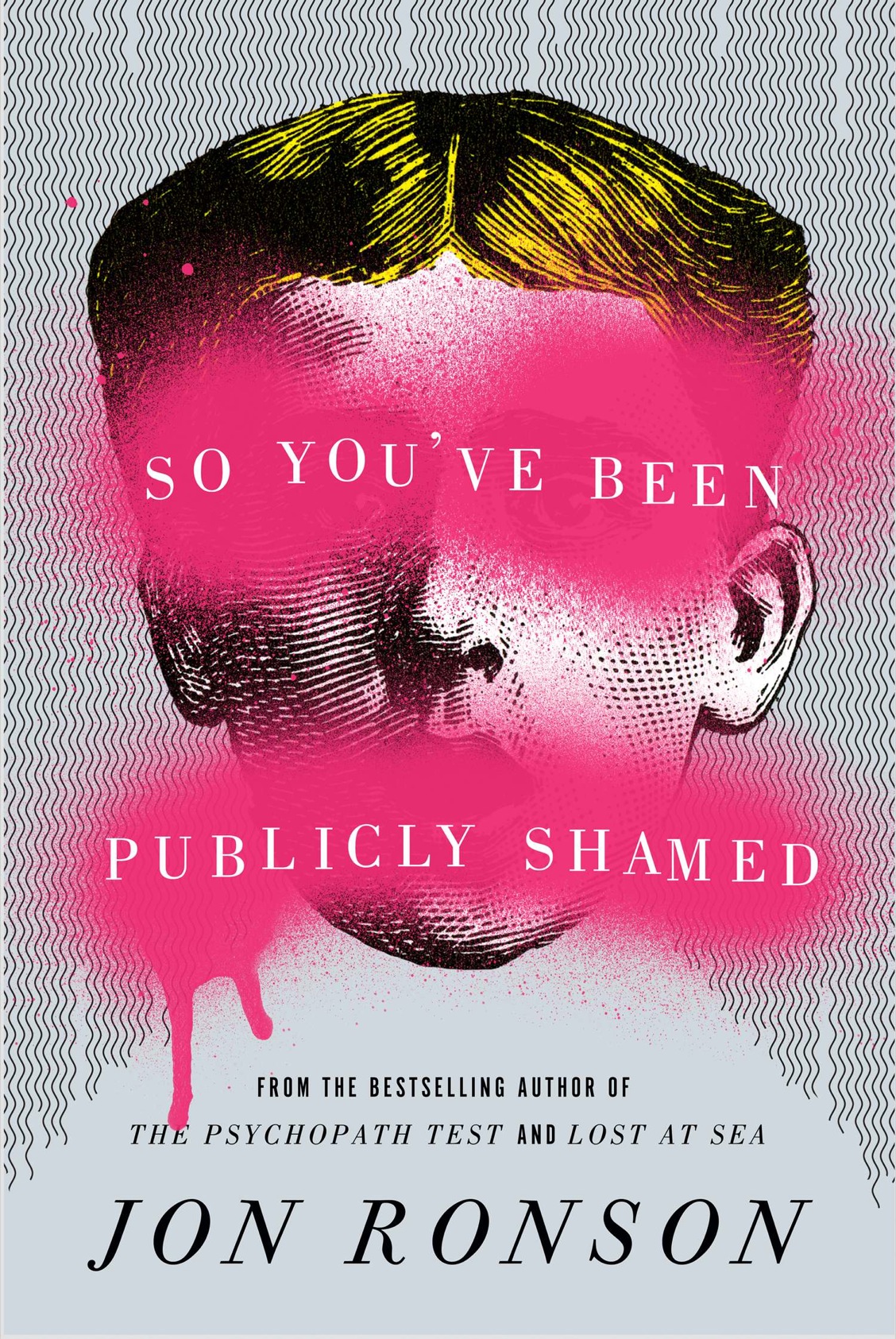
So You've Been Publicly Shamed
کتاب های مرتبط
- اطلاعات
- نقد و بررسی
- دیدگاه کاربران
نقد و بررسی

January 26, 2015
Bestselling author Ronson (The Psychopath Test) ruminates on high-profile shaming in the social-media age in this witty work. He interviews disgraced pop-science author Jonah Lehrer, fresh off a hellish apology tour, and the remorseful journalist who outed Lehrer as a plagiarist. PR executive Justine Sacco reflects on her own life, left in ruins after a single ill-conceived tweet, and elsewhere Ronson recounts how an inappropriate comment at a tech convention devolved into bedlam, with online threats of rape and death. For historical perspective, Ronson goes into 19th-century stockades, public whippings, and the theory of “group madness” popularized by Gustave LeBon, inspiration for the controversial Stanford Prison Experiments, in which ordinary students were transformed into sadistic guards. Ronson’s explorations also take him to an S&M sex club, a ridiculous “shame-eradication workshop,” and a therapy program for incarcerated women run by former New Jersey governor James McGreevey. Ronson is self-reflective and honest about his own complicity in the cultural piling-on he observes, recalling a spite-fueled campaign he orchestrated via Twitter against a journalist. Clever and thought-provoking, this book has the potential to open an important dialogue about faux moral posturing online and its potentially disastrous consequences. Agent: Natasha Fairweather, United Agents.

February 1, 2015
The author of works about everyday psychopathologies takes a hard look at the dark side of shaming on social media.This American Life contributor Ronson (Lost at Sea: The Jon Ronson Mysteries, 2012, etc.) believes that via social media, we are creating a contemporary version of Hawthorne's Massachusetts Bay Colony, awarding scarlet letters with gleeful viciousness to people who often are more guilty of silliness and indiscretion than they are of any egregious social (or actual) felony. Ronson begins with an incident in his own life: some computer guys who adopted his name on Twitter and tweeted things that the author despised. Then he examines case studies of specific individuals, most of whom he sought out and interviewed. Among them are plagiarists and fabricators (a Bob Dylan biographer who created quotations), a woman who tweeted an insensitive racial comment, a couple of guys in an audience who said noxious things overheard by a person nearby, and a woman who posted a photograph of herself making an obscene gesture at Arlington National Cemetery. Due to the swarms on social media, virtually all of these people lost their jobs, reputations and privacy. Digging into the backgrounds of these stories, Ronson unearths relevant information about shaming in the courtroom (a principal strategy employed by lawyers on both sides), the "unshaming" process (and how it can be very effective with prison inmates), and psychological experiments that show the extent to which humans will go to shame others. He also writes about computer whizzes who, for a substantial fee, can play with your name on Google search so that your indiscretions appear in a much diminished way (several pages down, where most searchers don't look). Another intriguing journey from Ronson, who notes that our social media dark side grows ever darker when we believe we're superior to others-and anonymous.
COPYRIGHT(2015) Kirkus Reviews, ALL RIGHTS RESERVED.

Starred review from March 1, 2015
Is technology moving humankind forward, or does the powerful reach of social media hearken back to the public floggings of the past? The author of The Men Who Stare at Goats (2005) and The Psychopath Test (2011) takes a hard look at modern-day shaming in his provocative new book. Inspired by an episode where a spambot impersonated him on Twitter, Ronson employs his typical investigatory approach to take the reader on a years-long exploration of humiliation via technology, his curious mind pursuing new avenues of inquiry as they open up. He recounts the real-time Twitter shaming of a disgraced author, which was displayed on a feed the author could see as he was making his apology speech; the race-tinged tweet of a public-relations executive that upended her life; and the story behind a Facebook photo that mightily offended members of the military and their supporters. Beyond that, though, he talks to those involvedboth the people shamed and those who acted as instruments for their humiliationabout their motivations, what the experience did to them, and whether they recovered. With confidence, verve, and empathy, Ronson skillfully informs and engages the reader without excusing those caught up in the shame game. As he stresses, we are the ones wielding this incredible power over others' lives, often with no regard for the lasting consequences of our actions.(Reprinted with permission of Booklist, copyright 2015, American Library Association.)

October 1, 2014
In 2012, Ronson's online identity was stolen by three academics. Indignant supporters rose up when he chastised them publicly, but Ronson soon began considering how much public shaming as social control is still with us, even if those scarlet letters have been pitched in the wastebasket. From the author of the New York Times best seller The Psychopath Test.
Copyright 2014 Library Journal, LLC Used with permission.

























دیدگاه کاربران